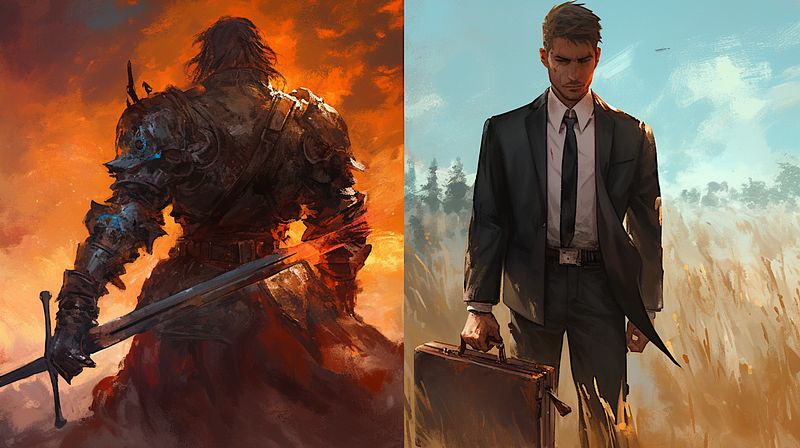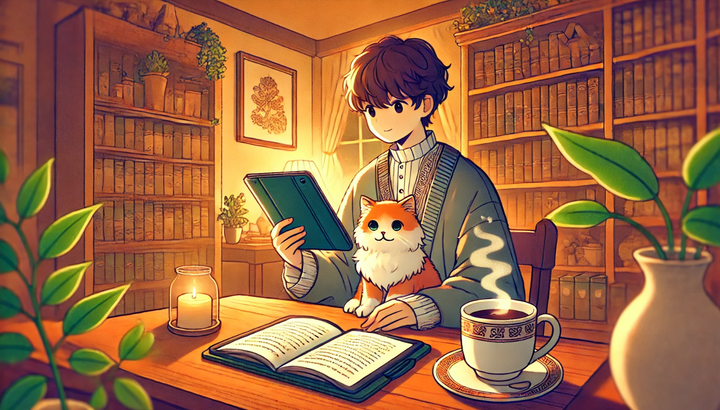Don’t Blindly Trust What You Learn From Fiction
My take on the fiction vs. non-fiction debate.

I’ve always loved stories. They drag us into different adventures across various mystical worlds. This gives them a unique power to inspire and teach. If I could, I’d live next to a bookstore, second only to a hospital. But I’d hate the debate that these fiction novels are better than nonfiction books.
Many readers on Medium are biased towards fiction. Rightfully so. Stories are the easiest escape we find from reality. However, I’m afraid I have to disagree with the debate that fiction is sufficient to learn about our reality.
1. My main problem.
There is a claim that we can learn everything that any nonfiction can teach through fiction. However, this perspective overlooks the core purpose of nonfiction: the meticulous distillation of years of expertise and factual knowledge.
Non-fiction books are important in their own right. They condense years of knowledge and experience into a 200–300-page book. The same is not possible through fiction.
Relying on a romance novel for insights into medieval politics is like digging for gold in a silver mine — possible but highly unlikely. There are those dedicated ones who do their due diligence, but that’s not entirely necessary and expected. This can even lead to unexpected dangers as not everything in fiction happens due to strict planning. The term “plot-armour” exists for a reason.
Ultimately, a story is always a means towards something. Every scenario and every character is only a tool to keep the story in motion. And sometimes logic flies away during the journey, and that’s to be expected. Stories have that freedom. They have the freedom to ignore certain consequences. But the reality is ruthless. We can’t avoid insurance payments without facing a financial crunch in emergencies. Many famous protagonists of books would be directly thrown into jail if they existed.
Valuable insights can indeed be found in fiction books, but these insights can have dangerous consequences unless filtered with caution.
That leads to a crucial question: How can we trust these insights from a fictional tale where murder is as easily possible as monarchy?
2. Trustworthiness of the information.
Nonfiction represents a collective effort — an amalgamation of insights from scientists, researchers, and experts refined over time. To write something about money, the author not only has to observe the lives of giants to form a hypothesis. However, he has to ensure this hypothesis holds for common people.
The best example of this statement is “The 48 Laws of Power” by Robert Greene. This is a wonderful book, as the author simplifies the historical scenarios and provides the exact situations where the laws can backfire. Similar references and accounts can be found in these amazing books, like Atomic Habits, Psychology of Money, etc. This added layer can make us believe the information, especially when they are speaking about sensitive areas like handling insurance, cancer and money.
3. Fiction is a dangerous gamble to change our lives.
I like the author Dan Areily’s statement about humans, “We are all predictably irrational”. We seem to believe ourselves to be rational beings. That’s partly true. We are rational within the active limits of our knowledge. But on the things we don’t realise, we are irrational.
We try to find that one excuse that can explain what’s wrong with the world rather than accepting what’s wrong with us. We are more prone to find good excuses for our situation rather than finding a valuable lesson. The main point is that we need not actively search for this. Our brain takes note of everything and weaves that one perfect excuse when looking for it.
This way, reading only fictional works to learn about our reality is very similar to gambling. There is a chance that we can win the lottery of an insight, but there is a higher chance of being misled.
I am not at all saying that you can’t learn through fiction. However, as social animals, we have an inherent bias towards stories. We evolved by listening to stories and keeping ourselves safer. The book “Sapiens” dives a lot deeper into this aspect. However, in the modern day, not every story has a moral to learn.
Both fiction and nonfiction serve unique purposes, but when it comes to understanding our reality, nonfiction remains unparalleled. After all, some truths are too complex and even dangerous to leave to the imagination.
As I stated earlier, reality is much more complicated than a fictional world. The statement applies to the nonfiction works out in the market, too! But that’s a topic of discussion for another day.
I hope you found something interesting to read today. Share your views in the comments below. Hope to hear from you someday!
Thanks for staying till the end! ✌️


